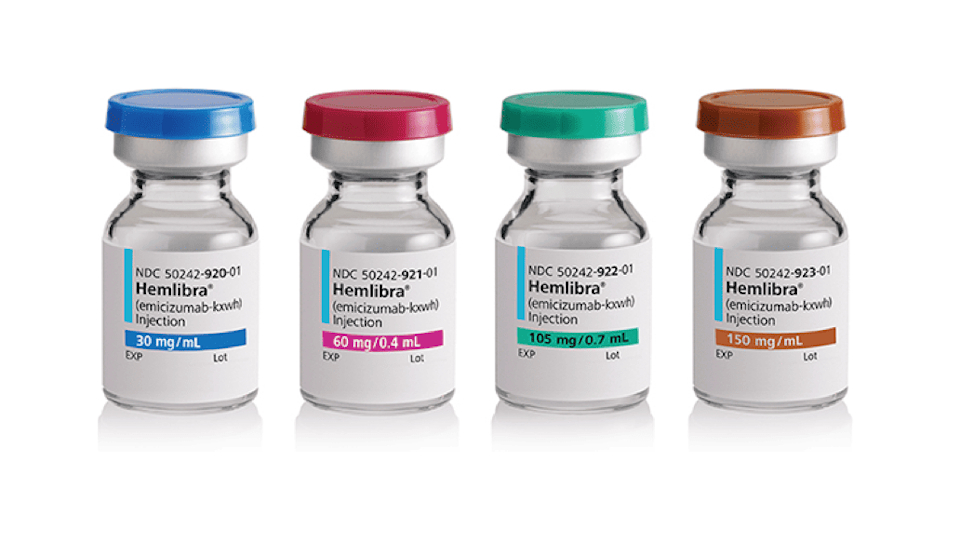More people living with haemophilia A in the UK will be able to get access to a subcutaneous treatment, Roche/Chugai’s Hemlibra, thanks to a decision by NHS England to make it an option for all patients.
Hemlibra (emicizumab), the only treatment currently available for haemophilia A via the NHS that doesn’t require an intravenous infusion, can now be used as prophylaxis in patients of all ages with moderate haemophilia A. Previously, it could only be used in patients at the severe end of the spectrum
Hemlibra was licensed by the MHRA for people of all ages with moderate haemophilia A, with a severe bleeding phenotype, who do not have factor VIII inhibitors in May 2023. Since then, the two drug companies have been liaising with the NHS’ Clinical Policy Lead and the Specialised Blood Disorder Clinical Reference Group (CRG) to try to develop a commissioning policy that would allow Hemlibra to be reimbursed for this population.
According to estimates, around 9,700 people are living with this form of the bleeding disorder in the UK, and of these, almost 800 are considered to have moderate haemophilia A. It’s thought that about 100 people with moderate haemophilia in England will be eligible for this treatment.
“Extending the availability of emicizumab means more people with haemophilia A will have more treatment choices, which is a very positive development,” said Kate Burt, chief executive of the Haemophilia Society, who added that the organisation is expecting the NHS in Scotland, Wales, and Northern Ireland to follow suit.
“Having a treatment which can be administered through an under-the-skin injection is an option that we know our members value,” she added. “We’re very pleased that more people will now be eligible for this product and can discuss its suitability with their clinician.”
Hemlibra was first cleared for NHS commissioning for severe haemophilia A with inhibitors in 2018, and had its use extended to patients without inhibitors the following year. It works by mimicking the action of the blood protein factor VIII, and as a fortnightly injection, it negates the need for multiple time-consuming infusions every week. That profile has driven take-up and it is now a $5 billion-a-year blockbuster product.
Andrew Varley’s two sons and father-in-law have moderate haemophilia and will now be eligible to use Hemlibra.
“This will be a game changer for my family,” he said. “The boys’ grandad is in his mid-70s and cannot administer his factor anymore because of severe joint damage. Being able to use emicizumab will be a godsend for him. My youngest son is 10 and uses a Port-a-Cath, so I’m hoping he can transfer directly onto ’emi’.”
Last month, Roche presented positive phase 1/2 results with a potential successor to Hemlibra, a bispecific antibody called NXT007 – derived from emicizumab – that brings together factor IXa and factor X and could offer greater potency and less frequent dosing.
